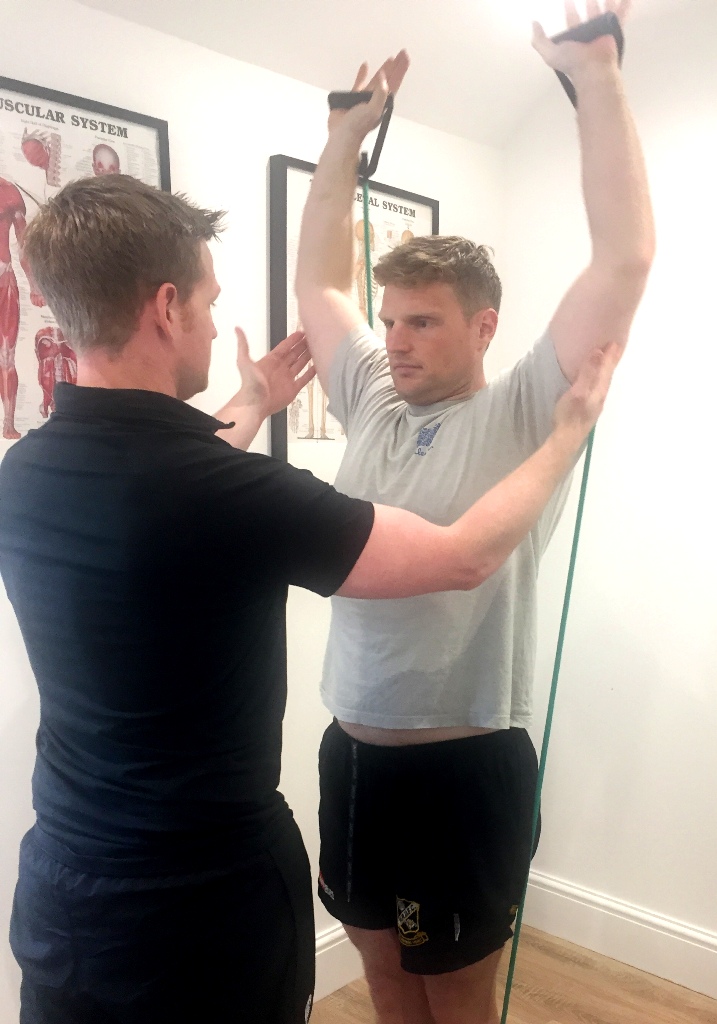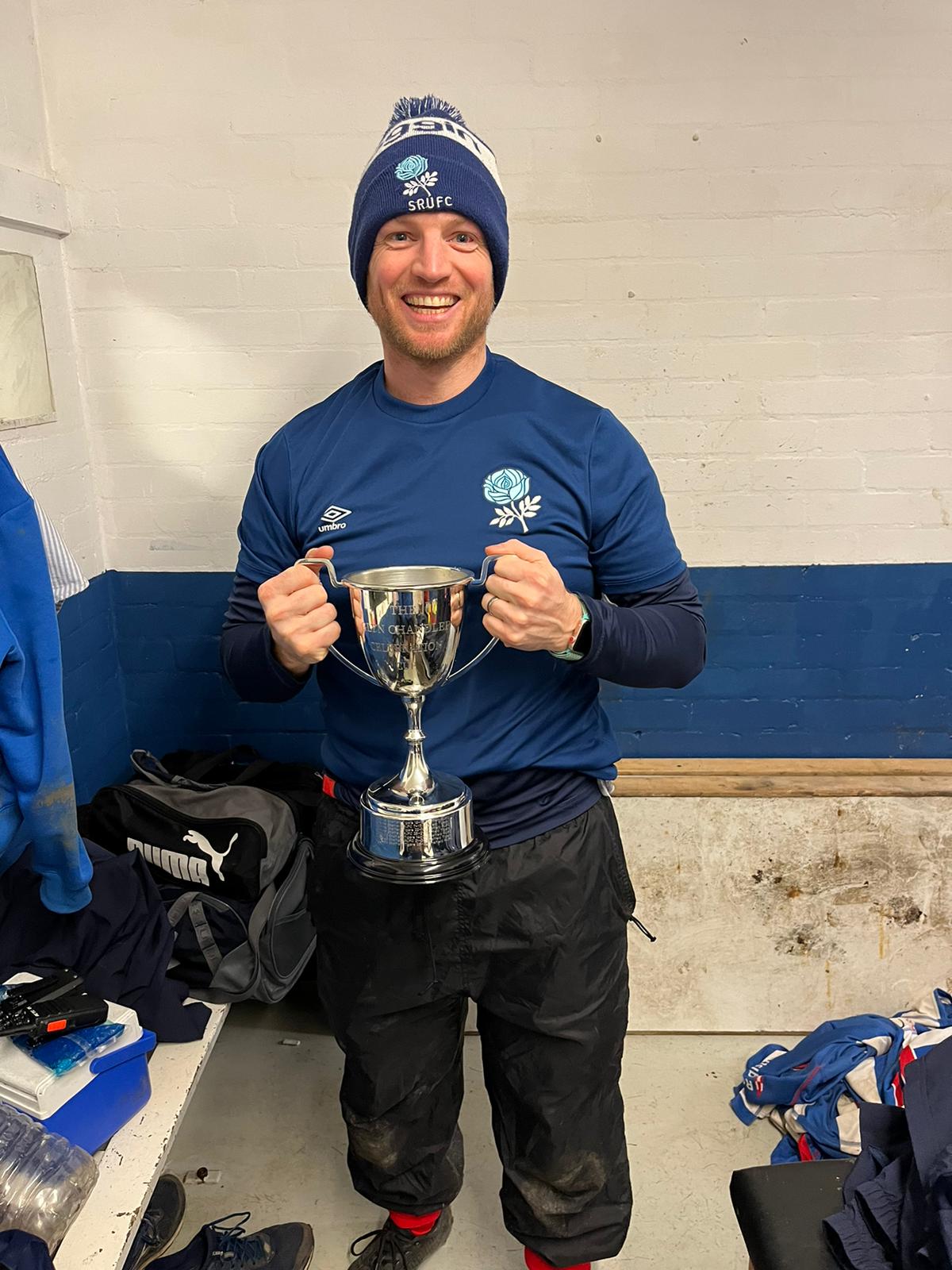The Role of Physiotherapy in Concussion Recovery

Although not widely discussed, Physiotherapy plays a critical role in the rehabilitation process following a concussion. Guy has a keen interest in concussion prevention, management and rehabilitation, mainly through leading the medical provision at Sheffield Rugby Club and seeing this first hand on a regular basis – he has unfortunately also had a few concussions himself over the years whilst playing! The management of head injuries has significantly changed for the better in recent years and many high profile sporting figures have helped to highlight the issue.
The brain and body require adequate time to heal; after a concussion returning to physical activity too soon can exacerbate symptoms, prolong recovery, and increase the risk of further injury. A well-structured physiotherapy plan is vital for ensuring a gradual and safe return to play, in turn, minimising the risk of recurrent concussions and long-term complications.
What is the role of physiotherapy in concussion management?
One of the first steps in post-concussion management involves a thorough assessment by a healthcare professional with experience in concussion rehabilitation, including:
- Baseline testing. This to assess the athlete’s cognitive and physical functioning BEFORE injury, this should be undertaken as part of pre-season preparation and essential for establishing a reference point to monitor recovery progress. Guy includes this with all the players within the rugby team at the beginning of the season.
- Cognitive assessments may encompass memory tests, reaction time evaluations, and concentration tasks, while physical assessments evaluate balance, coordination, and neck strength. This comprehensive evaluation lays the groundwork for tracking recovery and tailoring rehabilitation to each individual’s specific needs.
Acute management after concussion | what to do?
If you get knocked or fall or bang your head or neck during a match/training session or fall off a horse this initial stage is called the ‘acute phase’ and the sports concussion assessment tool (SCAT 6) identifies up to 22 different signs and symptoms of concussion. At this stage of injury, rest is paramount to allow the brain to recover, which involves avoiding over stimulation such as screens, loud music, reading, stressful situations and work or school. Guy recommends (based on RFU 24-48 hours relative rest), then a gradual return to school or work and finally general exercise before focusing on sport specific. However, prolonged rest without structured activity can lead to deconditioning and delayed recovery. Unfortunately, some people develop symptoms such as headaches, dizziness, and balance problems; physiotherapists can help to assess an manage these symptoms. The goal is to be symptom free for 14 days before you can increase exercise and ensure you remain symptom free. Within rugby you must not play before 21 days for adults and 24 days for under 19’s.
If you are experiencing dizziness after a concussion injury, vestibular rehabilitation is a specialised area of physiotherapy focuses on addressing balance and dizziness issues. This form of therapy involves exercises that retrain the brain to coordinate balance and eye movements, critical for rugby players where poor balance can significantly hinder performance and elevate the risk of further injury.
What does the neck have to do with it?
Neck injuries often accompany concussions, particularly in contact sports like rugby. The forceful impact causing a concussion can also strain or injure the cervical spine and neck muscles. Symptoms such as neck pain, stiffness, and headaches can persist if not properly managed. It’s a really good idea to get any neck pain or stiffness assessed by a physio. Guy routinely treats neck pain and recognises that this can often improve concussion symptoms overall.

Graded Return to Exercise, an important factor
Managing the athlete’s return to physical activity is a vital aspect of post-concussion rehabilitation. The brain needs adequate time to heal; premature return to play can increase the risk of another concussion, often more severe and requiring longer recovery. A gradual, structured return to exercise is essential, ideally guided by a physiotherapist.
As part of physiotherapy rehabilitation back to sport, Guy will develop an individualised exercise programme that enable athletes to return to activity in a controlled and safe manner. These programmes typically follow a stepwise progression, beginning with light aerobic exercises and slowly increasing in intensity. Monitoring symptoms during and after exercise is crucial; any recurrence of symptoms necessitates adjusting the programme.
Cognitive Rehabilitation | why is this relevant?
In addition to physical recovery, physiotherapy also plays a role in cognitive rehabilitation. Concussions often impair cognitive functions such as memory and attention, crucial for sports performance. If Guy is concerned that a player or individual has impaired memory or mental ‘sharpness’ that has changed, he will liaise with GP’s and other clinicians as needed.
Cognitive rehabilitation may involve memory exercises, attention training, and strategies for improving focus. Physiotherapists educate athletes about energy conservation techniques to manage cognitive fatigue, a common post-concussion challenge.
Is there anything that can help to prevent future risk of concussion?
It is understandably difficult to manage the risk of concussion within contact sport, but there are some things that can be implemented and considered to reduce risk overall.
Education: educate athletes about strategies for preventing future concussions. Proper tackling techniques, strengthening exercises for the neck and core, and improving overall fitness can significantly reduce the risk of head injuries in rugby. By teaching athletes how to protect themselves during play, physiotherapists help mitigate future head injury risks.
Conclusion
Physiotherapy management after a concussion is an essential component of recovery, particularly for rugby players who face a heightened risk of head injuries. A comprehensive rehabilitation programme addresses the immediate physical and cognitive symptoms of a concussion and helps prevent future injuries by strengthening the neck, improving balance, and educating athletes about concussion prevention.
The role of physiotherapy extends beyond physical healing—it provides athletes with the tools, knowledge, and support necessary to navigate the challenges of post-concussion recovery. Guy has personal and professional experience in the management of concussion injuries and is passionate about supporting to best prevent and mange concussion injuries when they do happen,

